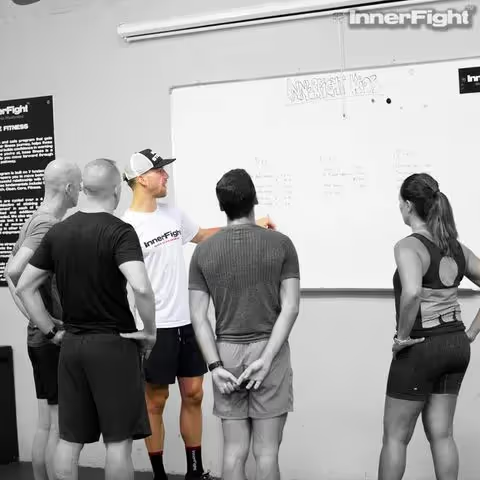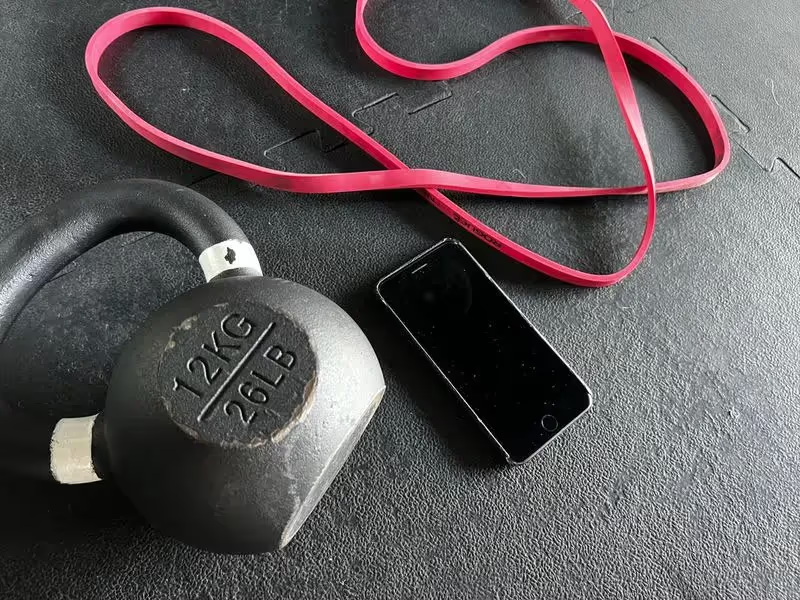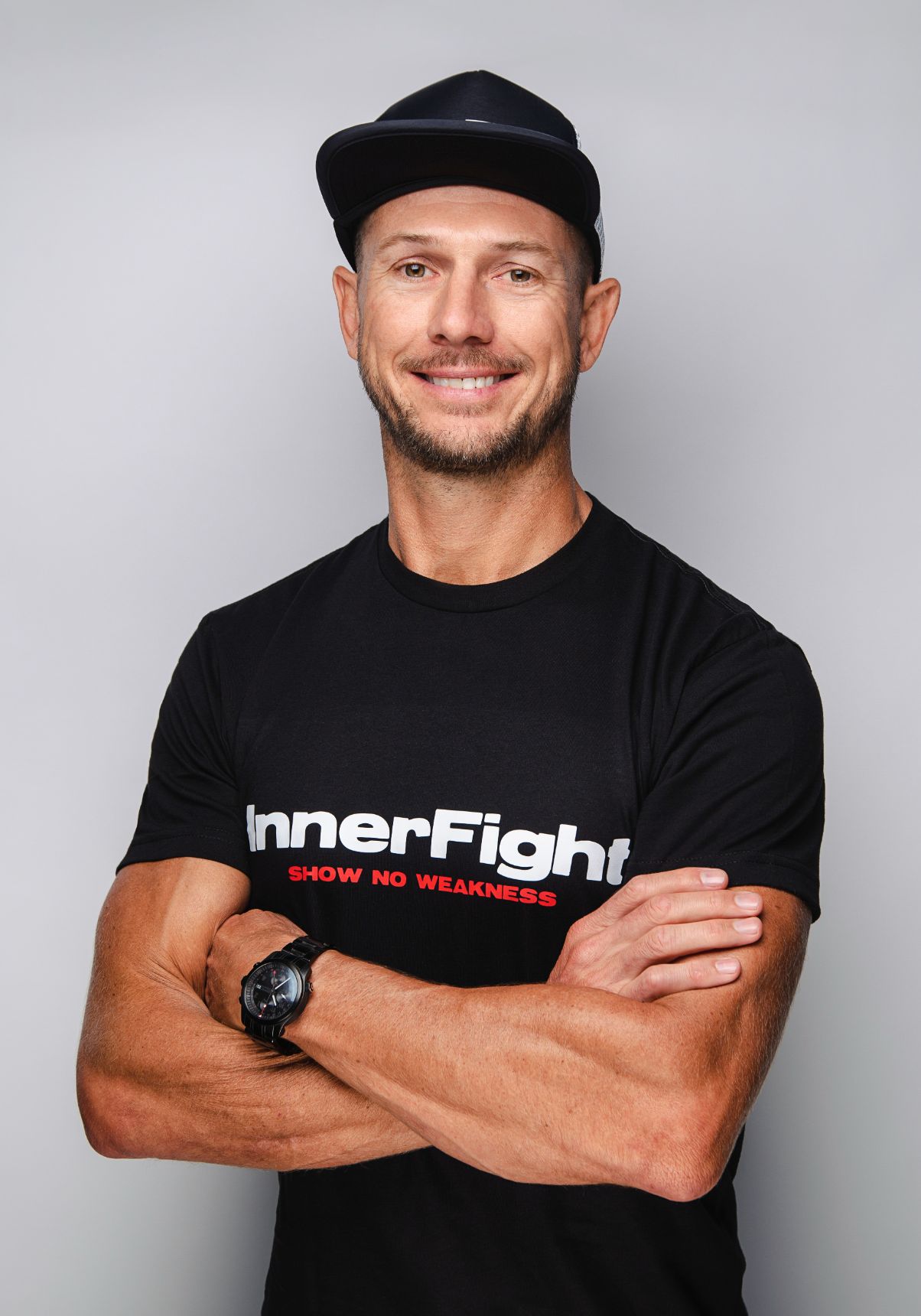Developing & Redevloping Habits
.avif)
We all hit rough patches. When life gets busy, something has to be sacrificed to make up the time. Instead of cutting out binge watching a TV show or waking up early, they’ll choose to sleep in and skip their workout.
This article is not about avoiding the rough patches – if you’re reading this, chances are that ship has already sailed. What I want to do is help you come out the other side armed with ways to stick to your fitness goals.
Whether you’ve been in a funk for two weeks or two years, these principles will help you out!
How small changes deliver big results
Have you ever heard of the ‘Mosquito Effect’?
It can often be tricky to see your way out of a rough patch. You look for significant actions that can make a big difference… but these can seem daunting and often unreachable.

The trick is to break things down into smaller, more achievable goals – these actions then add up to make a huge difference overall. This idea helped David Brailsford turn British cycling and team Ineos into a world-conquering powerhouse and it can do the same for you, too.
What does that have to do with a mosquito? Well, think about this: a mosquito is less than 1% the size of you, yet it can keep you up all night, torment you with itchiness and even kill you.
If you think that small things can’t make a big difference, think about the Mosquito Effect!
Redeveloping Habits: 1% Gains and 1% Losses
When developing and redeveloping habits, we want to not only look at what 1% gains we can make but also what 1% losses we can remove.
How to identify bad habits
If you ask most people what bad habits they have, they may find it hard to answer.
An excellent place to begin looking is around how you start and finish your day. Screen time habits? Eating habits? Exercise habits? Believe it or not, they’re all connected.
Stressful situations often have us hooked to a screen, desperate to know what’s happening. In this case, ask yourself what you’re monitoring and if you need to be doing it right now.

So many people are hooked to the news to know the following headline. Is it helpful to see before you head out on the run you’ve been putting off all week, or is it better to have a clear head? Should we check what’s going on just before going to bed?
The answer to both questions is: probably not, so the 1% move here is to not look at your phone upon waking or 60 mins before sleeping. Remove the phone from your view!
That’s a small change that’ll make a big difference.
Why do we develop bad habits?
Rough patches usually come with a need to elicit dopamine to make ourselves feel better.
One way we can do this is to eat! Food can trigger a huge dopamine response before eating a mouthful, but be careful – with big ups comes big downs.
Planning out your week of food can remove the 'surprise' our dopamine-hungry brains love and keep levels much smoother. Seeing food as your fuel and not your emotion controller is vital.
People who love food gifts don't actually love the food (or they would already have it in their house). They love the fact they weren't expecting it and now have it. Make a plan that you are in charge of.
Don’t over-commit to unachievable goals
Exercise can also trigger many emotions along the same lines as food and news flashes. Usually good ones!
When emerging from a patch of nothing or even a patch of chaos, be hyper-aware of how you might be thinking. We can get ourselves into trouble repeatedly by setting goals out of our reach or the exercise bar a little high.
3 Principles to make fitness habits easy
If you are a little stuck at the moment or are emerging from a difficult time, try to focus on these three things:
- Small differences can make big changes
- Make a plan that you are in charge of
- Avoid comparisons
How to develop realistic habits
“I’m going to go to the gym every day this week” is not an exercise goal. Nor is “I’m going to complete an Ironman in 2 months’ time” if you’re just returning from an injury.
Seeing exercise as your partner in getting better is far more productive in these situations. Do you prefer exercising alone or with a friend?

If you prefer working out with a friend, then be willing to try what they are doing and go to the workout with an achievable goal – either spending time with your friend or simply getting out of the house.
Don’t focus on burning Kcals or working so hard that you’re too sore and stiff to workout the following day.
If you enjoy exercising alone, then do just that: avoid crowded sessions that may increase stress or data-focused workouts that you can compare with others or your previous self.
All these are possible slip-ups that could set you back again. Exercise is about raising your heart rate above baseline and stressing the muscular system, which has positive knock-on effects on your metabolism, hormones, and cardiorespiratory system.
It doesn't need to be about numbers, winners, losers, or selfies!




.jpg)

.jpg)
.avif)
.jpg)
.avif)
.jpg)
.jpg)


